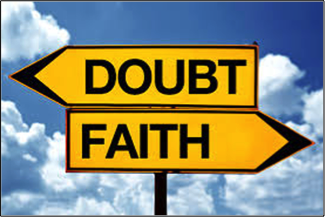
I had a noble, yet obviously exhausted, leader tell me awhile back that he’d rather wear out than rust out. It sounds so spiritual, doesn’t it? Nobody wants to rust out? You rust out because of inactivity. That’s what happened to the Tin Woodsman in the Wizard of Oz. Nobody wants to be that poor sap.
But I also don’t want to be the guy that looks like he hasn’t had a decent night of sleep in about a month. Harried isn’t a fruit of the spirit. I understand that sometimes we have seasons of busyness and sleep eludes us. I understand that sometimes we really are pressed and perplexed and the weight of the world is on our shoulders. But I also know that “wear out or rust out” is a fools choice.
There’s a third option.
Be poured out.
There’s a big difference between this option and the other two. This one means that you’re in the cup of another. The guy who rusts out gets to stand in a field and do nothing while it rains on his metal carcass. The guy who wears out gets to sweat until he passes out on the treadmill. But the guy who is poured out is firmly liquified in a vessel waiting to be put into action by another.
And that seems to be more the biblical idea. Consider Paul who spoke of being “poured out as a drink offering”. We’re servants. That means that on some occasions the Lord will put us into the game and it will require every bit of our being. In these moments we’re called to live it all on the proverbial court. In such a season our being “poured out” is synonymous with being emptied.
But there are some seasons when we’re in the cup. Some seasons you spend years in a cave learning from the Lord himself. Sometimes you stay on the sidelines. Sometimes rust is a bigger threat than exhaustion. But that’s not on you. You’re the liquid. You’re the clay in the potter’s hand. You just do what the master tells you.
This is actually really difficult. It’s tough, especially as a pastor, when the Lord puts us in a season of rest and healing. As Newton so aptly said, “the last idol to go is the often the idol of usefulness”. Suffering and laboring and being poured out in front of others will get you a few accolades. But it’s much more difficult to rest in front of others. A harried people don’t respond well to such a thing.
But I’m convinced our calling is to be poured out. Not worn out. Not rusted out. But fully in the Master’s hand no matter the season.
I couldn’t help but chuckle as I read these words from Dan Allender:
Obviously, many churches and organizations can’t afford to employ a truly bold and paradoxical leader. Such a leader is not bound to the pulse of busyness and, therefore, will, by how he lives, confront and expose the silliness of those who pay his salary. Why would a harried and exhausted congregation, for instance, pay to see its pastor live a focused and paradoxical life? The fact that he has time to read, pray, and weep is more than a driven and overworked parishoner can bear. Off with his head! (Leading With a Limp, 135)
I’m grateful that in this season when the Lord is encouraging my soul and healing my hurts that it seems Calvary (where I pastor) actually does what a leader who gives his time to reading, praying, and weeping. I’ve got deacons who’d be upset with me if I didn’t close my door. They want fed.
I’m a truly blessed pastor. God knew exactly what we needed. But even so, I’m just in the cup of my Master. He decides when seasons of pouring come.
None of this is to say that I’m not substantially spilled out every single time I preach and labor in the Word. It’s absolutely draining and I give it 110%. But I also know that at this particular time God has given me a season where the fires aren’t too hot. And I intend to respond fittingly to whatever season God has me in. I won’t wear myself out just because I think it’s noble. I’m choosing to be poured.
–
Photo source: here

 27.
27.